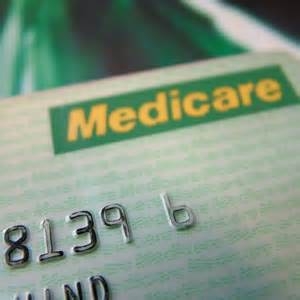
The Federal Government was told its $7 Medicare co-payment would disproportionately hit the old and chronically ill, previously secret documents reveal.
The documents, obtained by The West Australian under Freedom of Information laws, show many of the nation’s poorest will have to carry more of the cost of the $3.5 billion plan, even with a cap on payments.
The Government faces a battle to win support among crossbench senators to have the co-payment in place by the middle of next year. Money from it is destined for a medical research fund but it is being structured to help reduce the Government’s debt burden.
But medical and community groups fear the $7 fee will stop people with the biggest health concerns seeing a doctor.
The heavily redacted documents, released after a three-month negotiation with Treasury, suggest the concerns are valid.
Just days before the Budget’s release in May, a Treasury official asked the Health Department in an email about the average use of Medicare services by concession card holders, such as pensioners, and non-concession card holders.
Those figures show the average use of general Medicare services by concession card holders of all ages was 8.4 times a year.
For age pensioners, the average use is 10.7 GP visits a year.
For Commonwealth senior health card holders, the average use is nine times a year. But non-concession card holders use Medicare just 4.8 times a year.
The Government plans to apply the co-payment to the first 10 services only after which current bulk-billing arrangements would kick in.
With pathology and diagnostic imaging included, all concession card holders would hit the 10 visit cut-off, leaving them at least $70 a year worse off. Occasional users of services would pay much less.
The email was sent at 6pm on May 9, too late for any change to the Budget delivered on May 13. It suggests the issue of who would pay most of the co-payment surfaced late in Budget deliberations. Health Minister Peter Dutton is considering an alternative co-payment plan proposed by the Australian Medical Association.
AMA president Brian Owler said the FoI documents confirmed the burden of the Government’s co-payment would fall on those who visited the doctor the most but could least afford it.
Treasury modelled the full impact of the co-payment but this was not released on grounds it was Cabinet-in-confidence. For the FOI, Treasury revealed tables showing details of the co-payment’s impact on different types of patients that were used as case studies in documents released with the Budget. The tables show, for example, that a family with two children under 16 who are now bulk-billed could pay $98 in co-payments for 12 GP visits for one child and four for the other. Medicare would cover $632.40 of the GP’s bill, a $70 reduction.
Source: The West Australian
